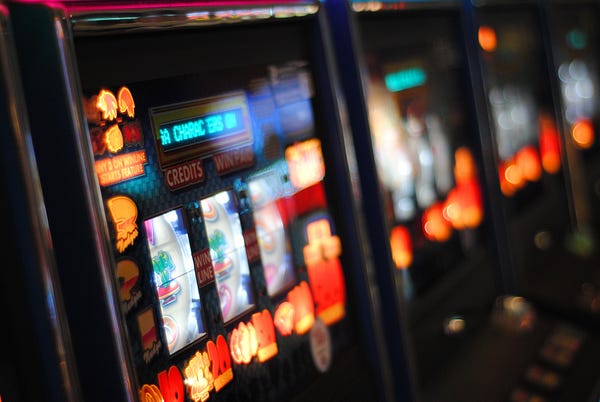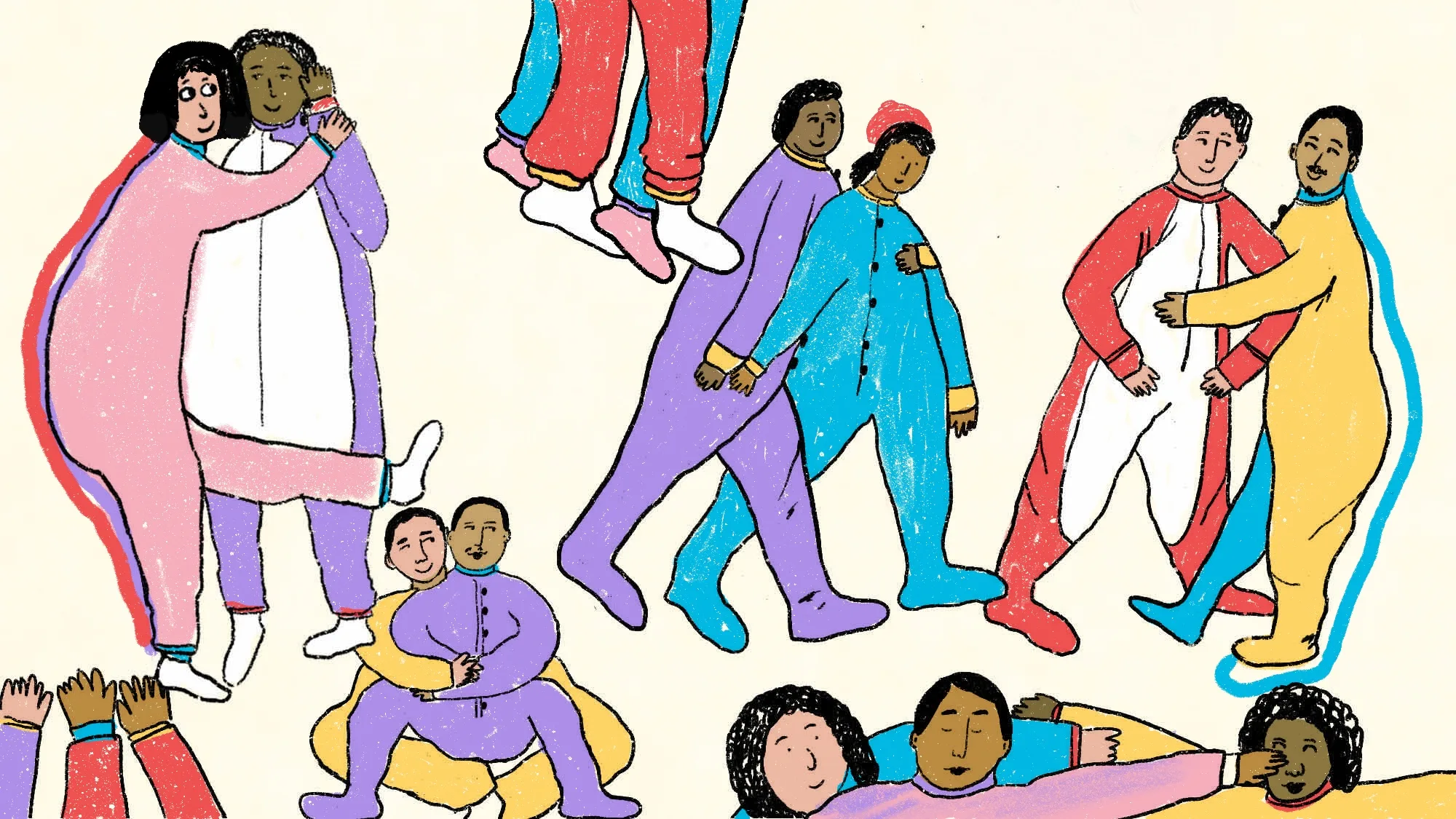Talent At Peace
December 13, 2019Faster Horses
December 20, 2019A different way of looking at a gambling addiction
A story by Marco Pedroni
It is a cold winter afternoon in Rivolta D’Adda, a small town 30 kilometres west of Milan. Gianni is what the medical and psychological literature defines as a ‘pathological gambler,’ someone who is unable to resist the impulse to feed the slot machines. He is now in a clinic ward, the only one of this kind in Italy, where compulsive gamblers receive residential care for a 5-week period and are treated both pharmacologically and psychologically. He has agreed to tell me his story.
‘After buying a bar,’ he says, ‘I started playing the (slot) machines. You keep playing, you keep playing. What happens to you then? When you lose, you want to recover (the money). The more you gamble, the more you will gamble. It’s a chain that has begun and doesn’t end anymore.’
Gianni, aged 62, lives in a familiar context of substance abuse. His 34-year-old son is addicted to cocaine and alcohol; his wife is an alcoholic. Excess is a keyword in defining his current state, an excess of financial losses due to gambling. He has been forced to close down his business, an excess of his addiction to a behaviour that is responsible for deteriorated relationships with family members. So far, nothing new: one of the many tragic stories of destruction caused by pathological gambling.
An unusual interpretation of gambling
No doubt, gambling is as a form of risk-taking behaviour. But you may be surprised to see also under a different guise: gambling as a form of resistance to the utilitarian values which lie at the base of the market logic. Excess in opposition to the utility. Through excess, the pathological gambler unveils the symbolic and arbitrary ideology of capitalism, which sees economic success as a sign of election or a choice whereby money is used not as an investment or access to goods and services, but ‘wasted.’ What if this excessive behaviour were also a way to resist capitalistic and market values, such as capital accumulation and commodification of time?

On the one hand, gambling is a phenomenon characterised by many nuances ranging from excess in problem and pathological gambling, to recreational activity, a socially acceptable behaviour. On the other hand, it highlights a moral definition of excess whereby gamblers who have ‘lost control’ are labelled as pathological, yet the term used by the state when increasing the possibility to gamble, through more games, more gaming sites and an increased frequency of extractions, is legalisation. Gambling, then, reveals that excess is declared or not depending on the agent who exceeds. I term this the social hierarchy of excess gambling. Losing is a noble action when performed by wealthy classes as a form of ostentatious expenditure through games of skill that assume that players are skilled, while it is ignoble when associated with lower socio-economic groups addicted to ‘games of chance.’
Being humans means loving excess
To follow such an unusual interpretation, you should take a minute to come back to the brilliant French thinker Georges Batailles.
According to Bataille’s vision of excess, the modern calculation of utility is not able to provide a full sense of existing as a human being. The market economy acts as the ideological framework legitimating utility as a principle of social action; manifestations of excess are discouraged, if not explicitly limited. Expenditure for pleasure is tolerated when productive, or at least when it does not conflict with productive and utilitarian needs. Non-productive expenditure is identified as the opposite of any rational consumption, and consequently denied and stigmatised. But, as ‘human activity is not entirely reducible to processes of production and conservation’, unproductive expenditure remains a part of the behaviour of any social agent.

Excess gamblers destroy and do not create any capital, winning is merely a result either accidental or statistically unlikely action whose expected consequence is losing. The win is the apparent utilitarian goal of a process where the economic rationale is achieved only from the perspective of the cashier, in line with the refrain ‘the house always wins,’ and not from that of the bettor.
Extreme losers
The paradox of excess gambling is grounded in its two-fold nature of entertainment and of reaction to utilitarianism. Gambling expanded within liberalised markets and became a mainstream leisure activity for consumers. It is also a response or backlash to the utilitarian mentality. Whereas the utilitarian ideology prescribes useful and profitable activities, to invest money despite the evident statistical probability of loss is an act of resistance to the values of utilitarian and capitalistic society.
Gambling may therefore be seen as a perfect example of the ‘insubordinate function of free expenditure’ in Bataille’s words, as well as a form of sovereignty of the Self over social constraints.
This sovereignty, which ‘constitutes the region formally exempt from self-interested intrigues to which the oppressed subject refers as to an empty but pure satisfaction’, reveals the unwillingness to submit oneself to the household economy through a feeling of superiority, a moment where instead of serving life, life serves the individual.

Gamblers are eager to experience passion through excess and risk where individual forces are liberated in a state of excitation, rational laws of calculation are substituted by pseudo-rationality, unproductive values are created. Though it may seem a paradox, gambling functions as a liberation from the constraints of a market economy, where individuals are dominated. Pathological gamblers fail as citizens because they are not able to grasp the chances of personal growth offered by society, as husbands and parents because they cannot take care of their families, as consumers because they are unable to enjoy gambling as merely a form of pleasure and entertainment just as the commercial industry of gambling invites them to do. However, in extreme gambling, where money is no longer money, a new sphere of action is created, excitation is freed and the illogical becomes logical.
Gambling, when excessive, creates an extreme loser, one who is devoted to an expenditure so profitless and useless that money has no longer meaning as such, it is merely a medium to experience excess. Gambling has been often read as a mechanism of social domination and a tool for mass distraction and a relief valve for subordinate classes. What if a further function of gambling is a form of resilient consumption in which socially oppressed or marginalised individuals and groups may experience freedom, breaking the social constraints linked to utilitarian values by denying them through an extremely unproductive expenditure?
Want to experience sovereignty? Destroy money
Following Bataille’s lexicon once again, such a function may be viewed in terms of a (momentary) recovery of sovereignty, where a compulsive, addictive, profitless, exaggerated (in short, excessive) session of gambling acts as a means to control the forces to which gamblers are submitted. Marginalised victims of neoliberal capitalism, economic failures unable to attain the material success they desire, they regain sovereignty through the destruction of economic capital.
If money is, from a Marxist standpoint, the ultimate foundation of any social relationship and the goal of any productive activity, its destruction serves the double purpose of dismantling one’s network ties and of denying capitalistic values, as clearly testified by the interviewees’ biographies collected in this essay. Here lies the contradictory nature of gambling — the compulsive loss of control as defined under the psychiatric approach becomes, in the topsy-turvy world of gamblers, a way to take control by challenging the rules to which they feel subjugated in the utilitarian realm.
Is such an interpretation an invitation to waste money through slot machines or justification for pathological gambling? Of course, it is not. However, looking at the phenomenon with different lenses may help us understand the gamblers’ deep reasons, their desperation, their needs. And based on this, thinking of a broader social response, rather than targeted interventions that blame the individual as a failed citizen.
More articles on gambling as a social issue are published here
This is a story of the Futurist Club
By Science of the Time
Written by: Marco Pedroni

Marco Pedroni is a Sociologist of culture based in Milan. He writes about cultural economies, fashion, media, influencer marketing, gambling.
He is the editor of Homo Academicus, a blog on Medium.
He currently serves as an Associate Professor at the eCampus University (Italy). He has taught as an Adjunct Professor at the Università Cattolica of Milan, the University of Bergamo and the Politecnico of Milan, and as a Guest Lecturer for several courses and institutions, including the Milano Fashion Institute and the Marangoni Institute (Italy), the London College of Fashion, the Winchester School of Art, the Northumbria University and the Southampton Solent University (UK), the Aalto University (Finland), the Universidad of Sevilla (Spain), and the Izmir University of Economics (Turkey).
He is the author of Coolhunting (2010), the editor of From Production to Consumption: The Cultural Industry of Fashion (Interdisciplinary, 2013), a co-author of Fenomenologia dei social network (Phenomenology of social network websites, 2017), and a co-editor of Moda e arte (Fashion and Art, 2012). The full list of his scientific articles is available on Academia.edu



